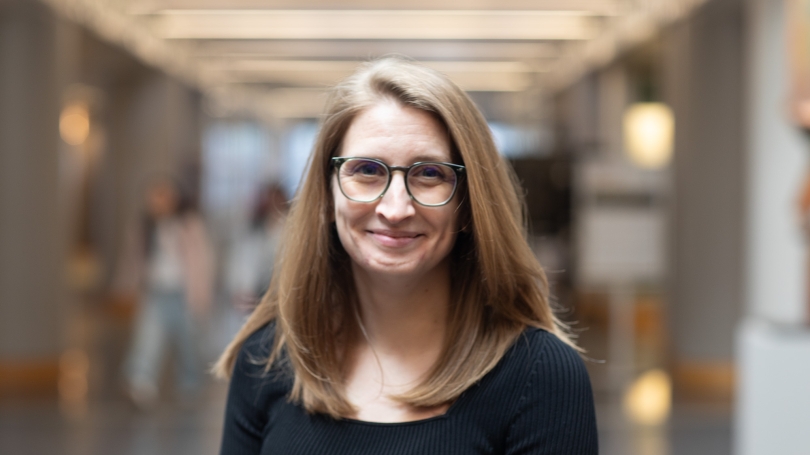
- About
- Departments & Programs
- Faculty Resources
- Governance
- Diversity
- News
Back to Top Nav
Back to Top Nav
Back to Top Nav
Back to Top Nav
The center offers expanded support for students across disciplines of all skill levels, including thesis writers.
Karissa Wojcik joined Dartmouth's Writing Center in December as its assistant director. An expert in writing program administration, Wojcik is working to expand the center's offerings for students across disciplines and writing levels.
"We are here to help writers of all skill levels and all stages of the writing process," Wojcik says. "Everyone can benefit, from first-year students to seniors and graduate students."
Any student can sign up for free on-on-one sessions to discuss a paper, research project, or multimedia assignment with a peer tutor. Meetings are designed to help students develop more effective strategies for generating and organizing their ideas, evaluate research sources, and present and revise compositions. Tutors are skilled writers from myriad academic disciplines who complete a robust training process and pursue ongoing learning throughout their tutoring careers.
Additionally, faculty are invited to contact the center to learn about and request course support, including tutoring and in-class workshops.
Beginning this term, the center will host 90-minute "write-ins" where students can get writing tips from Writing Center staff and take advantage of dedicated writing time in a group setting. The series was inspired by a Writing Center survey of sophomores last summer, where participants shared that they often struggle with time management. The write-ins will take place on April 16, April 30, May 14, and May 28, from 3:30 to 5 p.m.
"We hope that these sessions will help students stay on top of their assignments and offer useful productivity tips and tools," Wojcik says.
This summer the center will also offer a writing accountability group, with regular check-ins with staff and support with goal setting and progress.
In the fall, the center will offer long-term thesis writing support, where students can meet with the same tutor once a week—setting goals and feeling the support of Dartmouth's close-knit academic community.
"Writing a thesis can be isolating," Wojcik says. "Developing a tutoring relationship can be helpful not only for goal setting but also in feeling a sense of community."
Wojcik herself served as a peer tutor as both an undergraduate and graduate student, and has experience supporting both theses and dissertations. She holds a BA, a master's degree in sociolinguistics, and a TESOL certificate from North Carolina State University, and a master's degree in education and human development from George Washington University. She served as a faculty mentor for multilingual writing support at George Washington University, and as a professional writing tutor at National Defense University.
"I always knew I'd be in the Writing Center world," she says. "I love how I'm able to share what I know while learning about other disciplines and helping others communicate their research more effectively."